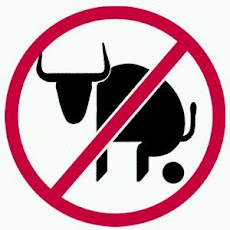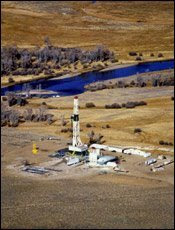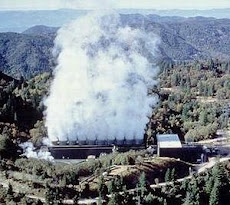Date: Friday, July 31, 2009, 5:07 AM
----------------------------------------------------------
http://www.latimes.com/news/opinion/opinionla/la-oew-boyles31-2009jul31,0,2957337.story
From the Los Angeles Times
Blowback
Wild horses aren't ecological villains
A Times editorial makes the troubling assumption that mustangs are pests that irrevocably damage our public lands.
By Stephanie Boyles
July 31, 2009
The Times' July 27 editorial "Wild horse sense," which weighs in on proposals to handle the growing feral horse population in the western United States, makes at least one good point: Using an immunocontraceptive vaccine (birth control, in other words) developed by the Humane Society of the United States presents the "best hope" for managing wild horses in an effective, humane and cost-beneficial manner. Peer-reviewed studies have shown that by treating more mares with this drug and returning them to the range, rather than detaining them indefinitely in holding centers, the cost of managing wild horses could be reduced by as much as 14% per year, saving taxpayers more than $6 million annually.
Now for the rest of the editorial.
The Times recommends castrating stallions. This would do little, if anything, to stabilize and reduce wild horse populations on the range over time. It only takes one intact stallion to fertilize an entire harem of fertile mares, so unless you capture and castrate every stallion in a herd, mares who have not been inoculated with the contraceptive will continue to foal.
Worst, The Times appears to come to the indefensible conclusion that wild horses are introduced pests that irrevocably damage our public lands and should therefore be managed by, in addition to castrating stallions, holding the herds in "vast, but contained wildlife refuges."
Wild horses have been an important part of America's landscape for centuries, and recent DNA studies have demonstrated that they are, in fact, native wildlife reintroduced to North America more than 400 years ago. In 1971, Congress passed the Wild Free-Roaming Horse and Burro Act, which requires the government to protect America's mustangs as "living symbols of the historic and pioneer spirit of the West." The law stipulates that wild horses would be permitted to live free on lands where they existed at the time the act was signed into law.
The notion that horses overpopulate and damage the rangeland is also grossly misleading. A 1990 study by the U.S. General Accountability Office determined that the primary cause of the deterioration of rangeland resources and damaged riparian areas is poorly managed cattle and sheep grazing, which is hardly surprising when you look at the numbers. The Bureau of Land Management oversees about 33,000 wild horses on 34 million acres of land, compared with more than 6 million head of livestock on approximately 160 million acres.
The editorial also claims that recent legislation passed by the House, HR 1018 -- the Restoring Our American Mustangs (ROAM) Act -- would increase the horses' range by 20 million acres. The Times fails to mention that since the 1971 act was passed, the U.S. Bureau of Land Management has reduced the lands designated for mustangs from 53.5 million acres to 34.3 million acres. The ROAM Act would not increase the horses' range but simply repatriate those mustangs to the public lands originally designated for them more than 30 years ago. This promising strategy will enable the agency to move horses out of the costly warehousing system and put them back on the range where they belong, saving millions of tax dollars annually.
In addition to reducing on-the-range management costs, the ROAM Act would also reduce off-the-range expenditures by only allowing the BLM to remove animals from the range when demand for horse adoption warrants such an action. It also directs the agency "to implement creative and more aggressive marketing strategies for the adoption program" in order to increase adoption rates and further reduce off-the-range management costs. The Humane Society and other wild horse protection organizations have been active in supporting and organizing the upcoming National Wild Horse Adoption Day events
The proposed ROAM Act would give Americans back their free-roaming horses, swapping a captivity-based approach to wild-horse management for the model Congress originally set forth. The measure would get us back to the basics on mustang management, save taxpayers millions of dollars annually and set our horses free again. Who wouldn't support that?
Stephanie Boyles is a wildlife scientist with the Humane Society of the United States.
Saturday, August 1, 2009
Subscribe to:
Post Comments (Atom)



















No comments:
Post a Comment